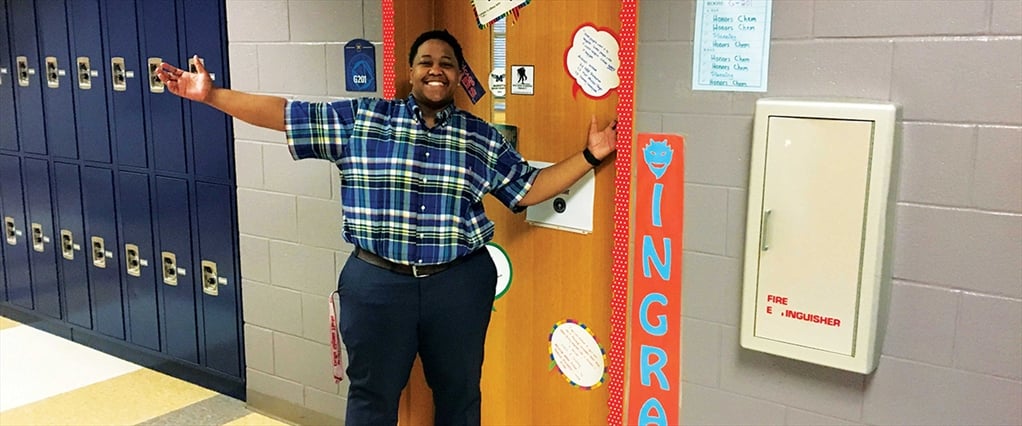From Doubtful Student to Enthusiatic Teacher
By: Renay San Miguel | Categories: Alumni Interest

“I had a keen interest in those types of shows,” she says, “especially when I took chemistry in high school.”
Ingram and chemistry proved to be a successful mixture, one that she thought would include a résumé-boosting PhD at Georgia Tech. Once at Tech, however, she faced a mystery of her own: Why was she so unhappy? Is this level of stress normal? If she gave up, what would her family and friends think?
Counselors in Tech’s Office of Graduate Studies say what Ingram experienced is common among graduate students. “They may feel they are failing even though they are simply taking a different path,” says career development advisor Robbie Outz.
With the help of Tech services and programs, including counseling from mentors, Ingram refocused her goals. Instead of staying for a PhD, she opted to graduate from Tech in May of 2017 with a master’s in chemistry and embarked on a career path that still takes advantage of her field of expertise.
Ingram went to Marietta High School just up the road from Tech to take part in a collaborative teaching program made possible by a $30,000 Woodrow Wilson Teaching Fellowship. Meanwhile, she’s also pursuing a master’s in teaching at Kennesaw State University.
When she started at Tech, she believed that five years of work toward a PhD would allow her to apply for a good crime-solving job with the Georgia Bureau of Investigation. But once her doubts that she was on the right path surfaced, she wondered if teaching was the better pursuit for her.
Her advisor, M.G. Finn, professor and chair of the School of Chemistry and Biochemistry, knew something was wrong.
“Second thoughts are the product of an active mind,” Finn says. “It’s often difficult to balance the desire to change with the need to persevere, but that’s where mentors can help. Ultimately, of course, it’s the student’s decision.”
Ingram made that difficult decision after her first qualifying examination. The panel members could tell that she didn’t want to be there, Ingram recalls. “They said I presented really well, but the work I put into my project could have been better. Their focus was in telling me that I wasn’t happy.
“So we talked, they left the room, I cried for a minute, and then I walked into M.G.’s office and said I want to be a teacher.”
Finn was delighted. A career in chemistry, he says, “doesn’t have to be research. We need great high-school teachers too.”
Ingram may still eventually try for a PhD, but in education, not chemistry. In the meantime, she wants to have the same impact on her students that her chemistry teachers had on her. She’ll have plenty of chances to do that—as part of her fellowship, Ingram has committed to teaching science classes in underserved Georgia schools for three years.


